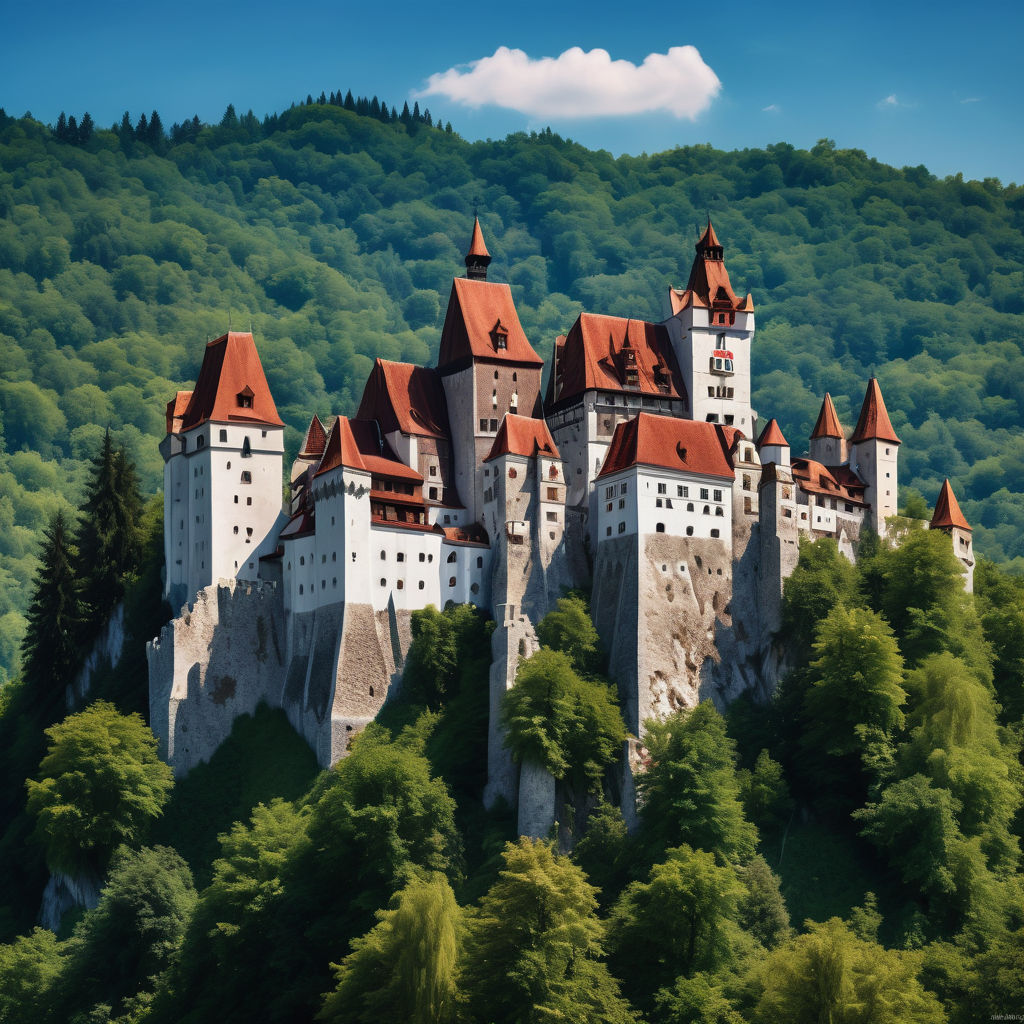Discover Romania: A Blend of History, Culture, and Natural Beauty
Exploring Romania’s Cultural Heritage, Social Interactions, and Cross-cultural Engagement

Introduction to Romania
Romania, located in Southeastern Europe, is bordered by Ukraine to the north, Moldova to the northeast, the Black Sea to the southeast, Bulgaria to the south, Serbia to the southwest, and Hungary to the west. Major cities include Bucharest (the capital), Cluj-Napoca, Timișoara, Iași, and Constanța. Romania’s rich cultural heritage is a blend of Latin, Slavic, Greek, and Turkish influences, reflecting its complex history and diverse population. The country is renowned for its picturesque landscapes, including the Carpathian Mountains, the Danube Delta, and Transylvania, as well as its vibrant traditions in music, dance, folklore, and cuisine.
Cross-national and Cross-cultural Understanding
Romanians generally engage with other cultures with warmth, curiosity, and openness. The country's history of being at the crossroads of various empires and its strategic location have fostered a deep appreciation for cultural diversity and international interaction. Romania actively promotes cross-cultural understanding through various initiatives and programs. Significant cultural exchanges and educational programs highlight Romania’s commitment to fostering global engagement. Institutions such as the Romanian Cultural Institute and the University of Bucharest promote Romanian culture internationally through events, exhibitions, and language courses. Additionally, the government supports scholarships and exchange programs, such as the Erasmus+ program, which facilitates academic and cultural exchanges, fostering mutual understanding. International partnerships also enhance cross-cultural understanding. Romania is an active member of international organizations such as the United Nations, the European Union, and the Organization of the Black Sea Economic Cooperation, promoting cultural cooperation and exchange. These partnerships facilitate student exchanges, collaborative research projects, and cultural festivals, strengthening Romania’s cultural ties with the world.
Interactions and Social Dynamics
Interactions between Romanians and foreigners are typically characterized by friendliness, hospitality, and a strong sense of community. Romanian social behaviors are influenced by cultural values such as "ospitalitate" (hospitality), "familie" (family), and "respect." These values are often reflected in the way Romanians engage with outsiders. Social behaviors in Romania emphasize respect and politeness in initial interactions, quickly becoming more informal and warm. Greetings often involve a handshake, and among close acquaintances, a hug or a kiss on the cheek. Hospitality is a significant aspect of Romanian culture, and guests are often treated with great care and generosity, frequently invited to share meals and participate in social gatherings. Communication styles in Romania are generally direct yet polite. Romanians value honesty and clarity in communication, often engaging in open and respectful discussions. Non-verbal communication, such as hand gestures and facial expressions, plays a significant role in interactions, adding to the overall expressiveness of conversations. Language plays a crucial role in facilitating interactions. Romanian is the official language of Romania, while English is increasingly popular among the younger generation and in urban areas, especially in business and tourism. Multilingualism is valued and encouraged, especially in educational and professional settings.
Views on Dating and Relationships
Dating and relationships between Romanians and foreigners are becoming more common, particularly among younger generations and in urban areas. Romanian society tends to be conservative about relationships, heavily influenced by cultural and religious norms. However, there is a growing openness towards cross-cultural relationships as opportunities for international exposure increase. In Romanian dating culture, there is often a strong emphasis on family approval and social harmony. Relationships are typically pursued with a long-term perspective, and traditional gender roles can play a significant role. Men are often expected to be providers and protectors, while women are expected to be nurturing and supportive. Cultural expectations and traditions, such as the importance of family approval and adherence to religious practices, can impact relationships. Understanding and respecting these cultural norms is essential for successful cross-cultural relationships in Romania.
Marriage and Family
Marrying foreigners is accepted in Romania, though it comes with certain social and familial considerations. Legal considerations for such marriages involve specific regulations governed by Romanian civil and religious law. Non-Orthodox spouses are often encouraged to convert to Orthodoxy, which can be a significant consideration for cross-cultural marriages. Socially, Romanian families may initially have reservations about cross-cultural marriages due to concerns about cultural differences and social compatibility. However, acceptance typically increases as relationships develop and families get to know the foreign partner. Family plays a central role in Romanian culture, and marrying into a Romanian family often involves participating in family gatherings and traditions. Common practices in cross-cultural marriages include celebrating both Romanian and foreign traditions, creating a blended cultural environment. For example, a couple might celebrate Romanian holidays like Easter and Christmas alongside holidays from the foreign partner’s culture.